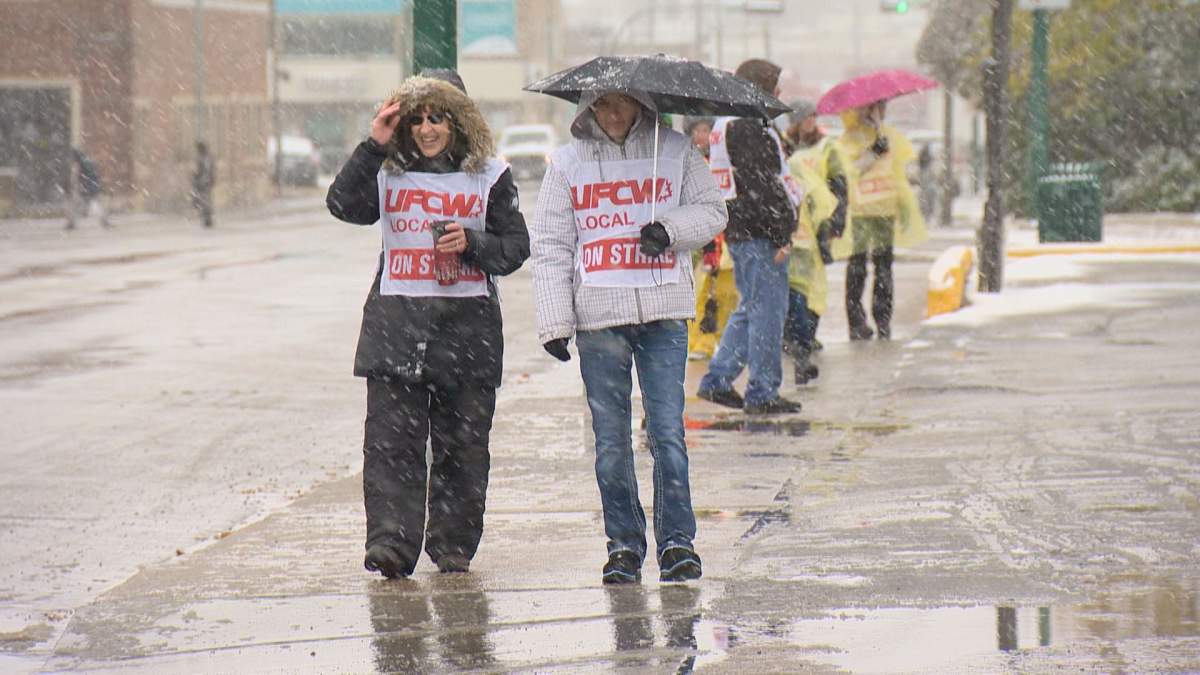Over 130 union members at Moose Jaw Co-Op locations took to the picket line in protest of a new contract that would see some workers earn less.

The strike includes workers from the Moose Jaw Co-Op MarketPlace, Agro Centre, Gas Bar and gas stations.
“The basic issue here is that there’s a second tier of employees that the employer has been hiring since the ratification of the last collective agreement who do the same work as everyone else and are paid significantly less,” Lucy Flack Figueiredo, Secretary-Treasurer for UFCW 1400 said.
After rejecting two contracts, 90 per cent of the members of UFCW 1400 voted to strike.
There are roughly 23 employees in that second tier, and 78 per cent of them are women.
“It’s not just a gender issue, it’s a human issue, and it’s an equity issue, a pay issue that affects women,” Flack Figueiredo noted, before reinforcing that this disparity wasn’t necessarily based on genders, rather just disproportionately affecting women.

Get daily National news
“Pay equity was important in general throughout a number of our collective bargaining sessions we’ve been highlighting that with the employer, that we feel that second tiers are discount employees,” she continued.
Tiered employee levels aren’t uncommon according to Jason Childs, an associate professor of economics at the University of Regina. But he was quick to point out it’s usually tenure that sets employees apart.
“One way it happens is when you entrench and really protect one group of employees. You tend to develop another group of employees who are really outsiders and they get treated much, much worse,” Childs explained.
Childs noted that while tiered employee systems can be beneficial to companies solely trying to maximize profits, they don’t work for employees doing the same jobs.
“If it’s equal pay, for identical work, then that should be in absentia of any and all personal characteristics. The problem is you have different expectations and different opportunities for different people, you’re going to get different pay outcomes. It’s really hard to disentangle whether the difference in pay is due to choices, or something systemic,” Childs concluded.
Editor’s note: A quote from Lucy Flack Figueiredo has been corrected to note certain workers are paid less.








Comments
Want to discuss? Please read our Commenting Policy first.